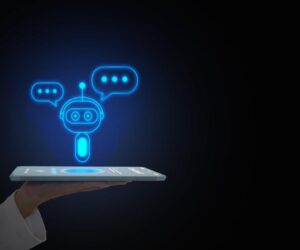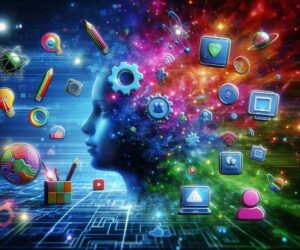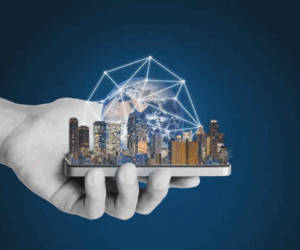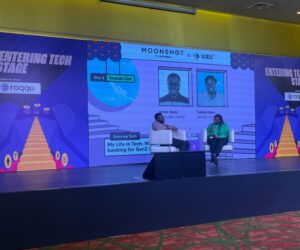Artificial Intelligence (AI) and Generation Z are revolutionizing workplace efficiency by integrating technological fluency with evolving expectations and new challenges.
This significant shift underscores critical issues and thought processes that are essential for adapting to the modern work environment. Organizations must recognize the importance of effectively integrating AI with Gen Z’s distinct perspectives, as this synergy is key to driving productivity and innovation in the workplace.
Key Issues in AI-Driven Workplaces with Gen Z
As the workplace undergoes significant changes, artificial intelligence is playing a pivotal role in transforming job engagement, particularly for tech-savvy Generation Z, who were born between the mid-1990s and early 2010s.
This generation is entering a workforce increasingly enhanced by AI tools designed to improve productivity, foster collaboration, and spark creativity.
AI algorithms are adept at streamlining routine tasks, allowing Gen Z employees to concentrate on more complex problem-solving and innovative thinking.
Tools for automated scheduling and advanced data analytics facilitate strategic decision-making, empowering these young professionals to leverage their unique skills effectively.
Moreover, AI-powered platforms significantly enhance communication and collaboration, bridging geographical divides.
Virtual assistants help manage workflows, while machine learning technologies create tailored training programs that cater to individual learning styles, aiding Gen Z in their professional development.
However, it is crucial to address the ethical considerations and the need for adaptability within this evolving work landscape.
By embracing AI, Generation Z is not only being prepared for contemporary employment challenges but also encouraged to cultivate innovative practices that have the potential to reshape various industries.
Over-Reliance on AI vs. Human Interaction
A notable segment of Generation Z employees expresses a preference for guidance from artificial intelligence systems rather than relying on traditional managerial oversight.
This trend raises concerns that such a reliance on AI could potentially undermine essential interpersonal skills, diminish opportunities for mentorship, and hinder effective collaboration in the workplace.
As these young workers turn toward technology for support and direction, there is a risk that personal connections and the nuanced understanding that comes from human interaction may suffer, ultimately impacting the overall dynamics of teamwork and professional development.
Ethical and Transparency Concerns
Recently, there have been instances where some employees from Generation Z have presented AI-generated work as if it were their own original creations. In addition, there have been cases of them automating various tasks without obtaining prior approval from their managers.
These practices have sparked significant discussions about accountability and ethical standards in the workplace, as they challenge traditional expectations of transparency and ownership in professional environments.
Concerns regarding the integrity of work and the potential ramifications for team dynamics and trust are becoming increasingly relevant as technology continues to evolve.
Mental Health and Burnout
The relentless pressure to stay abreast of rapidly evolving AI tools and technologies can have a detrimental effect on mental health.
This constant need to adapt and learn can lead to significant stress, as individuals may feel overwhelmed by the pace of change. As a result, many may experience fatigue and burnout, which can manifest as feelings of exhaustion, decreased motivation, and a sense of being emotionally drained.
This can create a challenging cycle where the demands of keeping up with these advancements further exacerbate mental health issues, making it increasingly difficult to maintain a healthy work-life balance.
Skill Development Gaps
The rise of AI automation presents a potential challenge for the development of foundational skills among younger generations, particularly Generation Z. This cohort often places greater emphasis on acquiring digital skills, such as coding and data analysis, which are essential in a tech-driven world.
However, this focus on technical proficiencies may inadvertently overshadow the importance of developing emotional intelligence and interpersonal skills.
Skills such as empathy, communication, and collaboration are critical for navigating personal relationships and professional environments.
As a result, there is a growing concern that an over-reliance on technology could lead to significant gaps in these essential soft skills, ultimately impacting both personal growth and workplace dynamics in the future.
Gen Z Thought Processes Toward AI and Data
Generation Z, known for their digital savviness, prioritizes efficiency in both work and personal lives. They view artificial intelligence (AI) as a valuable ally that enhances productivity by automating routine tasks, allowing them to focus on complex problem-solving and creativity.
Gen Z often uses AI-driven platforms for brainstorming and exploring diverse solutions, fostering innovative outcomes.
However, alongside their enthusiasm for AI, they harbour concerns about job displacement and biased decision-making from flawed algorithms.
Valuing autonomy, they prefer self-directed learning and decision-making, seeking AI-supported methods that empower them to tailor their educational and professional experiences to their unique needs. This reflects their desire for agency in navigating an increasingly complex world.
Solutions and Best Practices
Organizations are encouraged to integrate AI in a way that complements human judgment rather than replacing it.
This approach fosters hybrid workflows that combine automation with human oversight. It is essential for companies to provide soft skills training alongside AI adoption, focusing on communication, empathy, and collaboration to enhance the workforce’s capabilities.
Additionally, establishing transparent AI policies is crucial. These policies should include clear guidelines on ethical AI use, the disclosure of AI-generated work, and data privacy to build trust among stakeholders. Lastly, personalized learning paths and career coaching powered by AI can support Gen Z in achieving their individual growth goals, ensuring they are well-prepared for the evolving job landscape.
Case Study Insights
Various companies are leveraging AI tools to enhance efficiency and streamline operations. For instance, Morgan Stanley’s AI solutions have enabled advisors to save 30 minutes in each meeting by automating note-taking and follow-up tasks.
Meanwhile, Victoria’s Secret has improved the efficiency of in-store associates and enriched customer experience through generative AI. In the tech sector, Uber’s AI copilot, known as ‘Genie,’ has successfully automated internal support, saving the company an impressive 13,000 engineering hours.
McDonald’s has introduced an AI assistant called Olivia, which has greatly improved its recruitment process by reducing the time-to-hire by 65%. This development is just one example of how AI is reshaping workflows in various industries, showcasing its potential to optimize and streamline operations.
The Future Outlook
Generation Z is actively transforming the integration of artificial intelligence in the workplace. With exceptional digital fluency and an innate comfort with technology, they are at the forefront of developing and applying AI tools.
This generation demands transparency regarding data usage and privacy, inspiring organizations to adopt more accountable policies. They prioritize meaningful work that reflects their values, motivating companies to consider the impact of technology on productivity and employee satisfaction.
As businesses embrace these transformative changes, their success is directly tied to the design of AI systems that adhere to rigorous ethical standards.
Human-centred leadership is essential; leaders must create environments where employees are not only valued but also inspired to innovate. By establishing strong ethical frameworks and promoting inclusive practices, organizations can fully harness the power of AI and align seamlessly with the values of today’s dynamic workforce.
Final words
In this critical moment, where Gen Z’s digital expertise intersects with AI’s analytical prowess, the workplace is not just evolving, it is being transformed.
Harnessing data-driven efficiencies is no longer a choice; it is an essential mandate for visionary leadership.
Organisations that ignore this imperative will inevitably fall behind, while those that embrace it will catalyse a vibrant culture of innovation, agility, and purpose.
The future is reserved for those who boldly align intelligence with intention, and Gen Z, empowered by AI, is at the forefront of this movement.
![]()











